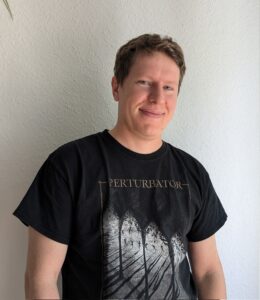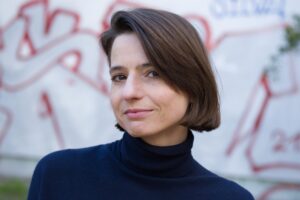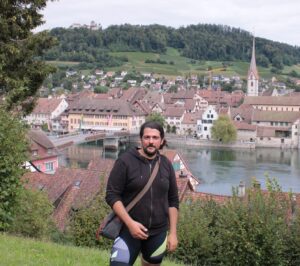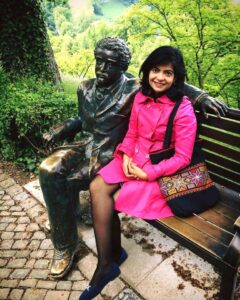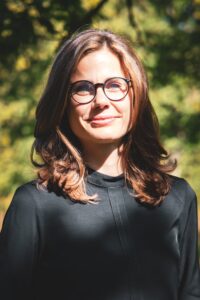Event: Leakage. Inaugural Conference of stsing, Technical University Dresden
19. – 22. March 2024
Introduction
The German STS community convened at TU Dresden in March this year to celebrate the founding of “stsing” – an association that seeks to strengthen and increase the visibility of the German STS community. Although established in 2020, the association had to wait four years for its inaugural celebration due to the COVID-19 pandemic. Over two hundred participants gathered in the beautiful city of Dresden in eastern Germany to discuss science and technology through the lens of “leakage;” a term that reminds us that boundaries are constantly crossed in natural and human-made systems, that constructions are not stable, and that the consequences of actions deserve attention alongside their intended goals.
This report brings the perspectives by two stsing board members together with those of conference participants. We emphasise three main points. First, we want to share a glimpse of the good time we had with the wider STS community at the conference. Second, we want to provide an idea of the vibrant exchanges taking place in and around Germany related to our field. Third, in an era of ever-larger conferences, we want to highlight the value of mid-sized meetings like this one, not as substitutes for large gatherings, but as complements that allow a diverse range of people to enjoy a mutual exchange of ideas.
Organising Leakage
Situating the conference at a technical university was a deliberate effort to build bridges between the natural sciences, engineering, humanities, and social sciences, by emphasising their respective world-making capacities. Choosing “leakage” as the conference theme illuminated the myriad ways in which bodies, technologies, and environments permeate one another, as well as how STS approaches inspire productive new encounters when they cross disciplinary boundaries. Leakage, framed as both an environmental and infrastructural phenomenon, attracted a diverse range of contributions. Panels spanned critical data studies, environmental humanities, border studies, marine STS, museum studies, science within and beyond the lab, human-machine interactions, algorithmic justice, extractivism and more. While associations with leakage were usually negative – something to be contained – it was both challenging and enriching to explore positive aspects of the concept – leakage as something potentially productive.
The organisers took great care preparing the conference – from drafting the call for papers, reviewing abstracts, selecting an outstanding line-up of keynote speakers (Nerea Calvillo, Amade M’charek, Thao Phan), conceptualising off-site events, assembling the program, and establishing an intentional and inclusive etiquette. The goal was to create a rich and welcoming conference experience for all participants. The program featured a variety of formats, including traditional paper presentations, roundtables, workshops, lectures, audio walks, film screenings and artistic performances. This diverse program demonstrated that research can take many forms, and that cross-disciplinary collaboration has the potential to create new and engaging formats that push the boundaries of academic inquiry.
Although organising Leakage required considerable effort, it was a rewarding process. Collaborating with colleagues from different departments and career stages initiated the kind of interdisciplinary engagement we strive to cultivate as a community. At a time when academic freedom in Germany was under scrutiny, this gathering was a hopeful demonstration of how interdisciplinary and critical thinking can thrive under challenging circumstances. Positive feedback from participants confirmed that Leakage fulfilled its aim of fostering meaningful connections between disciplines.
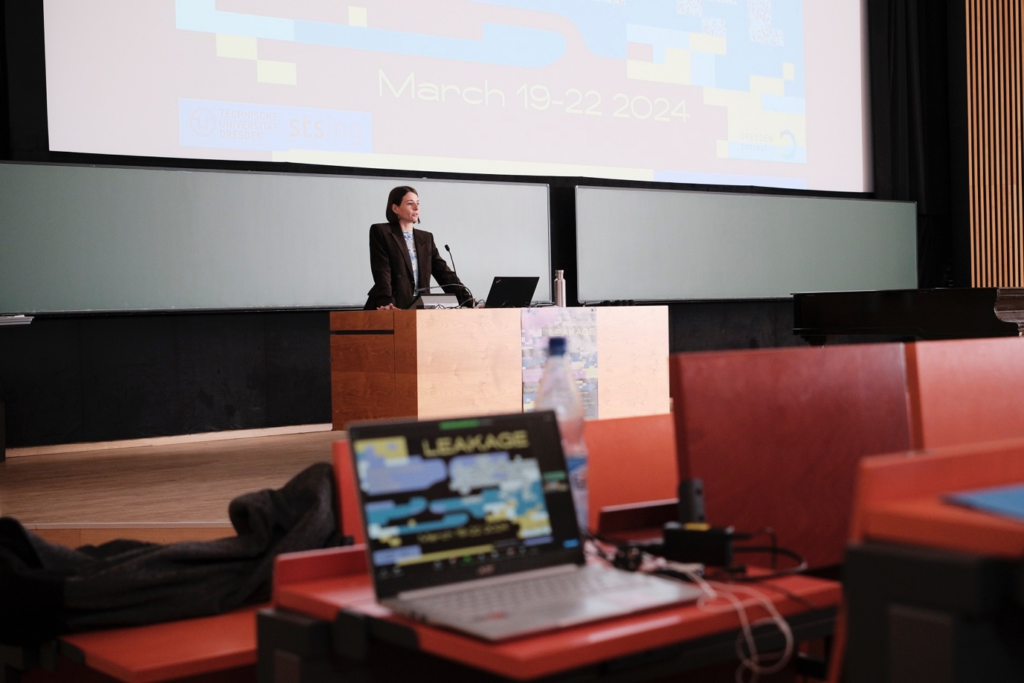
An opportunity to meet
Science and Technology Studies is still an emerging field in Germany, scattered across institutions and largely driven by early-career researchers. Although a few institutions offer dedicated STS programs, STS is typically integrated within sociology, anthropology, geography, political science, media studies, or design departments. It is therefore crucial that we cultivate spaces for interdisciplinary exchange and offer young scholars opportunities to connect and collaborate beyond disciplinary boundaries.
For many participants, Leakage was the first large gathering of the STS community they had attended in Germany. With over fifty panels over four days, the event created a lively, intense, and stimulating space for ideas and conversation. From anthropology to philosophy, and from environmental leakage to a leaky Z-drive, it truly included the A-Z of STS in Germany and beyond. The event’s breadth made it easier for new members of the community to connect across varying academic origins. From early career researchers to professors, everyone shared the same space, and every effort was made to include voices from all stages of the academic career trajectory. The thoughtfully assembled panels included independent scholars, artists, graduate students, postdocs, and tenured professors who offered a wide range of intellectual perspectives.
This diversity was further encouraged by several caring infrastructures. These included conference etiquette posters that reminded attendees to be mindful of their positionalities and respect others, the availability of safe spaces where participants could retreat from the hectic pace of the conference, a multilingual awareness team to assist in cases of uncomfortable interactions and catering that accommodated participants’ preferences and tolerances. Many participants highlighted these initiatives in their feedback to the organisers. They told us that they felt welcomed, safe and able to concentrate on what makes in-person conferences interesting: meeting new people.
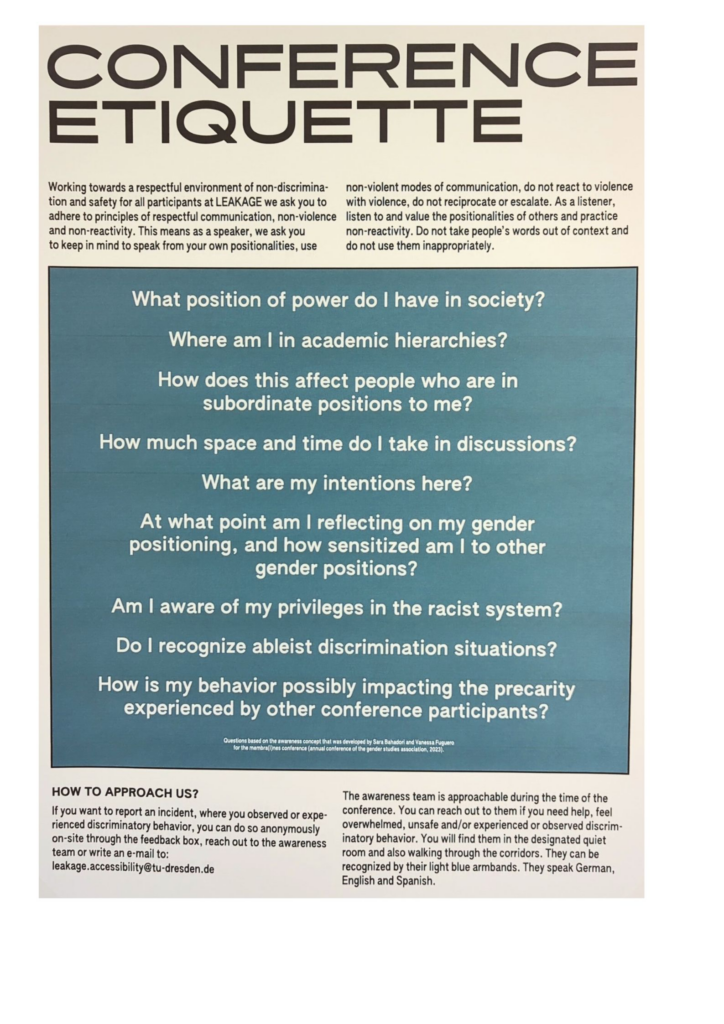
This inclusivity was facilitated by generous conference fee waivers sponsored by stsing and EASST that enabled seventeen junior scholars to present their work at the conference. Financially precarious early career scholars also received a free year of stsing membership to help them familiarise themselves with the association. This support, alongside access to networks and thoughtful feedback on presentations, was a significant benefit to junior scholars, and to the conference as a whole.
Leakage through art
We are well-versed in the usual conference practices: talking, listening, and analysing. However, when confronting one of the greatest crises of our time, our words fall short. Recent years have shown that while facts help us grasp the scale of the ecological crisis, it fails to translate those facts into the actions and transformations needed to protect our leaky earth. Latour and Schultz (2023) argue that emotional understanding and affection are crucial for political action. Yet emotions require more than presentations and words.
The question then becomes: How does knowledge permeate our bodies and everyday lives, even at a conference? In Dresden, it did so through art, film, and sound provided by Rosa Barba, Kat Austen, and Dongjoo Seo. On the third day, attendees were invited to “Leaky Earth: Multi-Mediations of a Planet in Transformation” at the Technische Sammlungen Dresden (TSD). The term “Anthropocene” is often contested, but watching Rosa Barba’s two short films translated this grand concept into tangible, vivid forms. One might say that the concept and the landscape leaked into each other. Two films by Barba, TSD’s artist in residence, portrayed landscapes destroyed, adapted, and transformed by human action. Bending to Earth (2015) depicted a radioactive waste dump that illustrated the destructive side of human-nonhuman relations. They Shine (2007) materialised and substantiated the notion of the Anthropocene through a series of arresting aerial views of solar panel fields in shimmering desert vistas.
After the screening, we wandered through the exhibition of technical objects, ending up on the sixth floor. After a long day of words, Kat Austen and Dongjoo Seo captivated our attention with their wordless performance. Their combination of sound and visualisations made climate change audible and visible. Images of destruction, deforestation, melting ice, and mining accompanied pressing, moving electronic beats, and the transformed sounds of water glasses and sticks. It was a lesson in how infrastructure shapes an audience: the room was full of chairs, and the bodies were quietly glued to them. Perhaps an empty space would have encouraged bodily expression of sound and beat. This evening was a successful attempt to translate our planetary predicament into a multi sensorial experience.
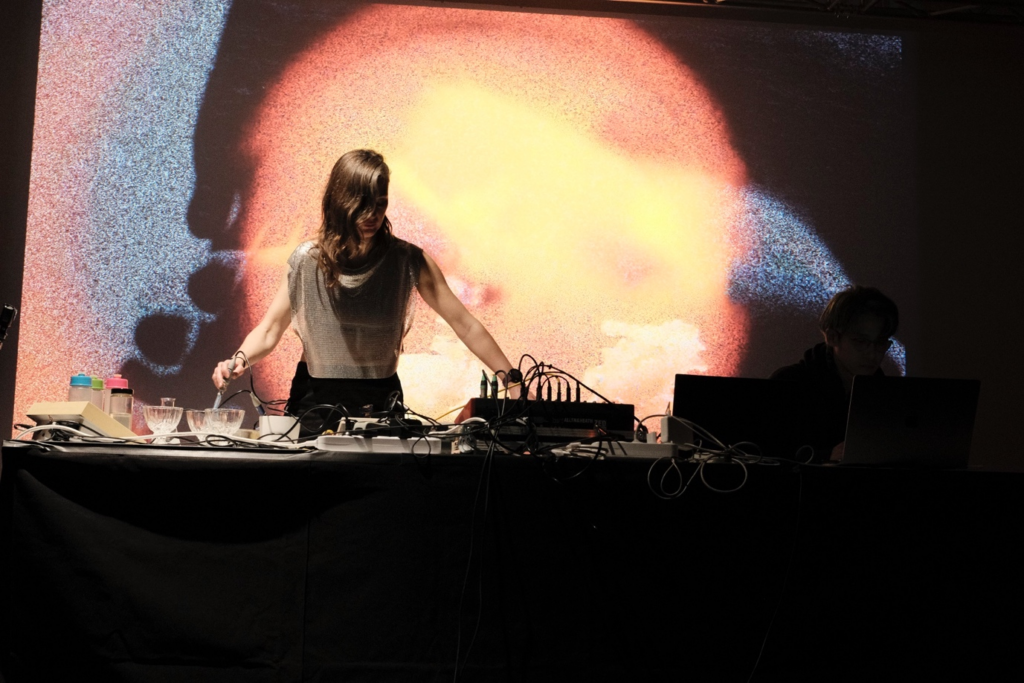
Celebrating Leakage
The conference also hosted stsing’s much-postponed birthday party. To celebrate this occasion, the first evening concluded with a reception at “object klein a” (the hottest club in Dresden, according to local colleagues). It was unusual and enjoyable to experience this venue in an academic context that set a positive tone for the rest of the week. The reception provided an opportunity for past and present board representatives to meet and share their perspectives on the association’s journey so far1. Another major event was the association’s 2024 General Assembly. While general assemblies are typically administrative tasks for those involved in running associations, they are also a valuable opportunity to bring the community together. Previously, these meetings were held on Zoom, which allowed attendees to participate without extensive travel, while still maintaining the social aspect of the gathering. This year’s meeting was the first attempt to gather as many members as possible in one place. Along with handling the usual administrative tasks, members approved the stsing code of conduct2, and thus took a significant step towards establishing an ombudsgroup for the association.
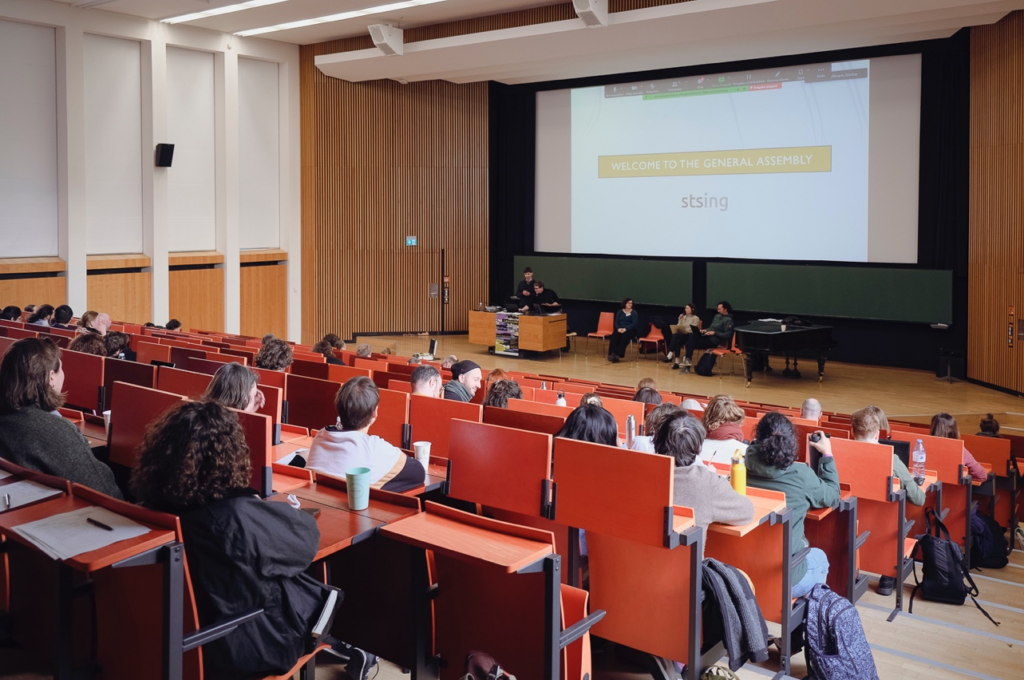
Epilogue
As enjoyable as it was to gather in one place at one time, this event is unlikely to be first of a series of annual German STS conferences. However, the association will continue to support the bi-annual STS-Hubs3 conferences organised by various associations and in Germany. Moreover, we want to adhere to one of the core principles of stsing: a commitment to small and local collaborations on topics of interest to our members. This typically occurs in working groups on various topics from specific research areas to infrastructure-related goals. We hope that Leakage served as a catalyst for new topics, the creation of new working groups, and a sense of vibrancy and engagement within the STS community in and around Germany.
Acknowledgements
OA, PK and AAS wish to acknowledge the fee waivers awarded by stsing and EASST. PK also acknowledges the generous travel grant by the Department of Social and Cultural Anthropology, AOI, Universität Tuebingen. The authors thank all who made the conference possible, who provided the pictures used here, and especially Melina Antonakaki for her valuable input into this report.
References
Helm P, Kocksch L and Sørensen E (2021). Staying with the troubles of infrastructuring stsing: between assemblage and “Verein”. EASST review 40(2): 16-19.
Latour B and Schultz N (2023). On the Emergence of an Ecological Class: A Memo. Hoboken: Wiley John + Sons.
Niewöhner J, Sørensen E and Bogusz T (2021). The Cosmology of stsing. EASST review 40(2): 13-15.
Footnotes
1 For more detail, see two EASST review articles by founder members of stsing (Niewöhner et al 2021; Helm et al 2021).
2 More info here: https://stsing.org/about/code-of-conduct
3 More info about the next STS-Hub here: https://sts-hub.de/25/
Author biographies
Markus HOFFMANN is a doctoral candidate and research associate in the sociology of science at TU Berlin. He works on interruptions in academic careers with a particular focus on unemployment and the COVID-19 pandemic). He is currently (2023-2025) a board member and treasurer of stsing.
Michaela BÜSSE is an interdisciplinary researcher and PostDoc at Technische Universität Dresden. Her research focuses on sociomaterial transformations, speculative urbanism, climate change mitigation and energy transition. Drawing on environmental anthropology and feminist STS, she investigates how design practices and technologies define who and what is rendered inhuman. She is currently (2023-2025) a board member and co-chair of stsing.
Ozan ALTINOK is a postdoctoral researcher at Leibniz University of Hannover, Center for Ethics and Law in the Life Sciences. He works at the intersection of philosophy of science in practice, hands-on bioethics, and global justice as . He aims to understand structures of local and international inequalityin health, disease, evolutionary medicine and bioethics.Para
Poonam KAMATH is a doctoral candidate and research associate in the department of Social and Cultural Anthropology at the University of Tuebingen, Germany. She studied Medical Anthropology (M.A.) at the University of Heidelberg. Her Master’s thesis focused on mental health issues and contemporary nosologies in urban and clinical spaces in Mumbai. She has degrees in Chemistry (B.Sc.) and Biotechnology (M.Sc.). Her ongoing doctoral research examines Kinderwunsch (the wish to have children) and its presence in digital environments in Germany.
Aurora A. SAUTER is a doctoral candidate and research associate at the University of Osnabrück and the University of Frankfurt. She works on the project “Production of Climate Displacement” at the SFB 1604 “Production of Migration”. Her work investigates the nexus of climate change and migration.
